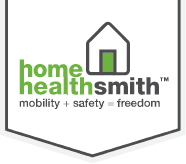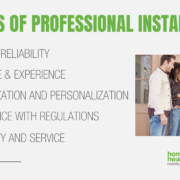How Stairlifts Help Families Keep Parents Safe at Home
If you’ve recently noticed your mom gripping the railing a little tighter or your dad avoiding the upstairs entirely, you’re not alone. For millions of adult children caring for aging parents, stairs represent one of the most common—and most anxiety-inducing—safety concerns in the home.
The good news? A stairlift can transform those worrisome staircases into safe, easy-to-navigate pathways, allowing your loved one to continue living independently in the home they know and love.
Why Stairs Become Challenging as We Age
Balance and mobility naturally change as we get older. Conditions like arthritis, joint pain, muscle weakness, and vision changes can make climbing stairs increasingly difficult—and increasingly dangerous. According to the Centers for Disease Control and Prevention, falls are the leading cause of injury among adults 65 and older, and many of these falls happen on staircases.
For families, watching a parent struggle with stairs can be heartbreaking. You might find yourself wondering: Should Mom move to a single-floor apartment? Does Dad need to go to assisted living? These are heavy questions, and they often come with significant emotional and financial costs.
A stairlift offers another option—one that lets your parent stay in their home while removing the daily risk that stairs present.
What Exactly Is a Stairlift?
A stairlift is a motorized chair that travels along a rail mounted to your staircase. Your parent simply sits down, fastens the seat belt, and uses simple controls to glide smoothly up or down the stairs. When they reach their destination, the seat swivels for safe, easy exit.
Modern stairlifts are designed with both safety and convenience in mind. Most models include features like battery backup systems that ensure the lift continues working during power outages, safety sensors that stop the lift if it encounters any obstruction, and seats that fold up compactly when not in use so other family members can use the stairs normally.
Types of Stairlifts for Different Homes
One of the most common questions families ask is whether a stairlift will work in their parent’s home. The answer is almost always yes. Stairlift technology has advanced significantly, and there are now solutions for virtually every staircase configuration.
Straight Stairlifts
If your parent’s staircase runs in a straight line without curves or landings, a straight stairlift is typically the most straightforward solution. These models install quickly and offer reliable, smooth operation. Popular options like the Harmar Pinnacle SL300 feature clean operation that requires no grease or lubrication, battery backup lasting up to 60 operations during power outages, and compact designs that minimize visual impact on your home.
Curved Stairlifts
Many older homes in New England feature curved staircases, staircases with landings, or L-shaped configurations. Curved stairlifts are custom-designed to follow the exact contours of these unique layouts. The Harmar Helix, for example, uses precision-bent rails measured with calibrated camera equipment to ensure a perfect fit and extraordinarily smooth ride.
While curved stairlifts require more customization than straight models, they provide the same reliable, safe transportation for your loved one.
Outdoor Stairlifts
Stairs don’t just exist inside the home. Front porches, back decks, and entryways often include steps that can become barriers for seniors with mobility challenges. Outdoor stairlifts are specifically designed to withstand New England’s variable weather conditions—from humid summers to snowy winters.
These units come fully weatherproofed with UV-protected upholstery, waterproof covers, and weather-resistant charger boxes. They allow your parent to continue enjoying their outdoor spaces safely, whether that means tending to a beloved garden or simply sitting on the porch with a cup of coffee.
Essential Safety Features to Look For
When shopping for a stairlift for your parent, safety should be your top priority. Here are the key features that quality stairlifts include:
Seat belts and safety harnesses: Every reputable stairlift comes with a seat belt to keep your parent secure during travel.
Obstruction sensors: Safety sensors on the footplate and body of the lift automatically stop movement if anything blocks the path, whether that’s a grandchild’s toy or a family pet.
Swivel seats: The seat rotates at the top or bottom of the stairs, allowing your parent to exit safely away from the staircase edge. Many models offer powered swivel functions for those with limited mobility.
Remote controls: Standard dual remote controls mean the lift can be called up or down from either floor—helpful in multi-user households or when you visit to check on your parent.
Key switches: A lockable key switch prevents unauthorized use, giving you peace of mind if grandchildren visit or if your parent has periods of confusion.
Helping Your Parent Make the Transition
For many seniors, accepting help with mobility can feel like losing independence. As a caring family member, you can help reframe the conversation. A stairlift isn’t about what your parent can’t do anymore—it’s about enabling them to continue doing what they love, safely.
Consider approaching the conversation from a place of shared goals: “Mom, I know how much you love this house. Let’s find a way for you to keep enjoying every room of it.” Or: “Dad, I worry about you on those stairs. Can we look at some options together?”
Many families find that once the stairlift is installed, their parent wonders why they waited so long. The freedom to move throughout their entire home—without fear or assistance—often brings a noticeable boost in confidence and quality of life.
Professional Installation Makes All the Difference
A stairlift is only as good as its installation. Professional installers ensure that the rail is perfectly aligned, the electrical connections are safe and code-compliant, and your parent receives thorough training on how to use their new equipment.
At Home Healthsmith, we take pride in our SafeHome Install process. Our team pays attention to every detail, provides complete demonstration and training, and ensures your parent’s home is left as good as or better than we found it. We’re not just installing equipment—we’re helping families maintain safety, independence, and peace of mind.
Take the First Step Toward Safety
If stairs have become a source of worry for you or your family, we’re here to help. Home Healthsmith offers free, in-home assessments to evaluate your parent’s staircase and discuss which stairlift solution might be the best fit.
We serve families throughout Massachusetts, Rhode Island, and Connecticut, and we understand the unique challenges of helping parents age safely in place. Whether you’re just starting to explore options or ready to move forward, our team is ready to answer your questions and guide you through the process.
Contact us today to schedule your free assessment. Because helping your parent stay safe at home shouldn’t be complicated—and with the right stairlift, it doesn’t have to be.




